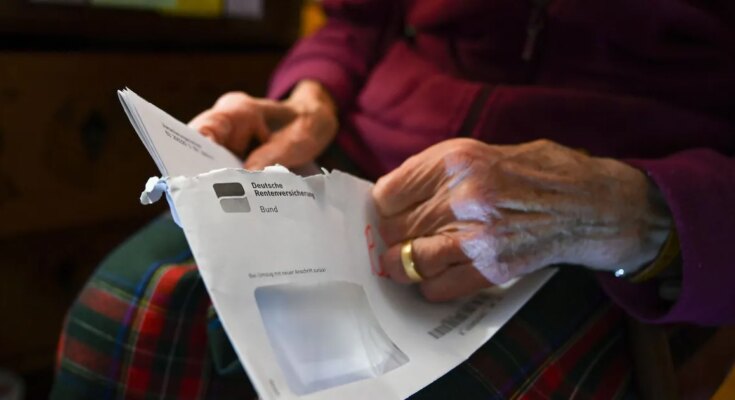The verdict against an 85-year-old widow, who had to pay back 60,000 euros, caused intensive discussion among our readers. Many criticized the authorities, while others held the woman responsible.
The case of an 85-year-old woman from Hesse, who received double her pension payments for decades and is now supposed to pay the money back, caused a stir. Reader reactions ranged from anger at the failure of authorities to discussions about personal responsibility, the stringency of the law, and the lack of digitalization. The focus is on the question: How could such a mistake have remained undetected for more than 20 years – and why do the consequences now only impact retirees?
Criticism of the authorities’ failures
Many readers saw this process as a prime example of structural weaknesses in the administration. They see the fact that double payments have gone undetected for decades as a reflection of a system that does not control and does not communicate. In particular, lack of digitalization, unclear responsibilities, and lack of control were criticized. This outrage has a factual basis: According to German Pension Insurance, there are still many manual processes across the country that are based on paper documents. The Federal Audit Office has been warning about deficits in data linkages and internal audit routines for years. The fact that these errors could go undetected for such a long period of time shows how wide the gap between expectations and reality is in government.
“The real scandal is that the pension insurer paid out two pensions to the same person and didn’t realize it. That’s an unparalleled indictment, despite the fact that the fine print refers to a reporting obligation.” For original comments
“Well, that’s not great. But the fact that this went unnoticed for twenty years is also a blow. Controls and authorities don’t go hand in hand. Each department does its own thing. Billions of dollars are wasted in different places and authorities due to a lack of digitization and cooperation between disciplines. If you operated with names and not license plates, things might move faster.” For original comments
Criticism of alleged unequal treatment
Many readers accused the judiciary and politicians of applying double standards. Although German pensioners are required to pay overpayments, other groups are allegedly treated more generously. This perception is based on distrust of equal treatment by the state. In fact, the following legally applies: Benefits paid incorrectly must generally be reimbursed by all recipients. However, in practice, incomplete data, changes in residence, or special legal cases often make the reclaim process more difficult.
“Yes, the courts can be harsh when it comes to German pensioners. Congratulations. When foreigners collect social benefits for no reason, sometimes for children who are not actually abroad, then strangely enough, no one has to pay anything back.” For original comments
“It is hoped that equally stringent action will be taken against social fraudsters who are found to be cashing in multiple times…” Continue to original comment
Focus on the responsibilities of those affected
Some readers clearly placed the responsibility on the retirees themselves. They argued that the double payments were clearly occurring and the woman should have reported them.
Legally, this corresponds to the ruling: The court decided that the affected person should have recognized “after the simplest consideration” that two types of the same pension had been paid. However, questions remain about whether seniors can be expected to examine complex notifications in detail. The judges’ firm stance was therefore met with understanding by some – and incomprehension by many others.
“If the woman is now 85 years old and has been receiving a double pension for 20 years, then she was only 65 years old when the double pension payments started. She should still be mentally capable of realizing this mistake. Or she should have been aware of it – ignorance does not protect against punishment.” For original comments
“I am a pensioner myself and I would quickly realize if I suddenly received a second pension to which I was not entitled.” For original comments
Debates regarding repayment claims
Other readers saw the personal consequences. Some expressed sympathy, others sarcasm. Others asked about the procedures for both pensions. In fact, the old age pension and widow’s pension can be received at the same time, but the widow’s pension is reduced proportionally if her income exceeds a certain limit. And repayment is usually unavoidable: authorities are obliged to reclaim amounts that have been paid unlawfully, even if the fault is theirs. But in difficult cases, suspension or partial relief may be considered – which does not appear to have happened in this particular case. This gives the impression of bureaucratic harshness without any sense of human proportion.
“The good thing: He has 30 years to pay it back, 50 euros every month.” For original comments
“I understand the decision. But I don’t understand what is behind it. She was clearly entitled to a widow’s pension and from a certain point on she was entitled to an old-age pension. Since then she was old enough for an old-age pension and she was still a widow. Why can’t you keep both in such a case…” In the original comment
Criticism of jurisprudence
Some readers criticized the court directly. Even though the decision is legally correct, it is morally questionable. Although the authorities have failed for decades, responsibility rests squarely with citizens. This view shows a common pattern: enforcement of the rule of law at the lower level, and leniency at the upper level. The judiciary here adheres to the principle of equal treatment in law, not justice in individual cases. But that is precisely what arouses resentment – because many readers expect the modern constitutional state to be able to distinguish between guilt and systemic error.
“Obviously, according to the court, this should be kept in mind “after the simplest considerations”! But pension insurance can make nonsense after nonsense, for 20 years. Why don’t you prosecute civil servants or employees? That won’t work anymore because “they” are protected by the state.” For original comments
“It is incomprehensible that the authorities only realized this after 20 years. There are differences of opinion regarding the judge’s decision.” For original comments
Call for modernization
Many readers called for a fundamental restart of government. Lack of digitalization, outdated working methods, and too many interfaces are considered to be the main causes of such cases. Pension insurance companies are developing electronic networks, but progress is slow. Data protection requirements and technical incompatibilities still hinder automatic comparison between systems. The ruling became a symbol of a bureaucracy that does not control its own processes – and therefore holds citizens accountable.
“It is an urgent time for the authorities to simplify and processes to improve and, most importantly, digitize. Basically, you may see the facts by chance after 20 years. It is a shame for this woman that this has now become known. In how many cases has it not been noticed?” For original comments
“You have to wonder about pension insurance accounting. Do they still do this manually with index cards? But even so, processors should pay attention to it with the same name and linked accounts.” For original comments
“This is Germany. A huge civil service apparatus and then something like this comes along!” For original comments
Other sounds
The remaining 10 percent includes other voices providing ironic or cynical comments on judge decisions, bureaucracy, and social systems.
The ruling regarding the reclaiming of widows’ pension funds was quite moving – the debate varied between criticism of the authorities, demands for justice and understanding for those affected. How do you assess the responsibility of governments and individuals in cases like this? Join the discussion: Is this ruling fair or is a need for more modern rules and more humanity in the welfare state?
The court issued a strict decision: the 85-year-old widow must pay back 60,000 euros
Have your say now



